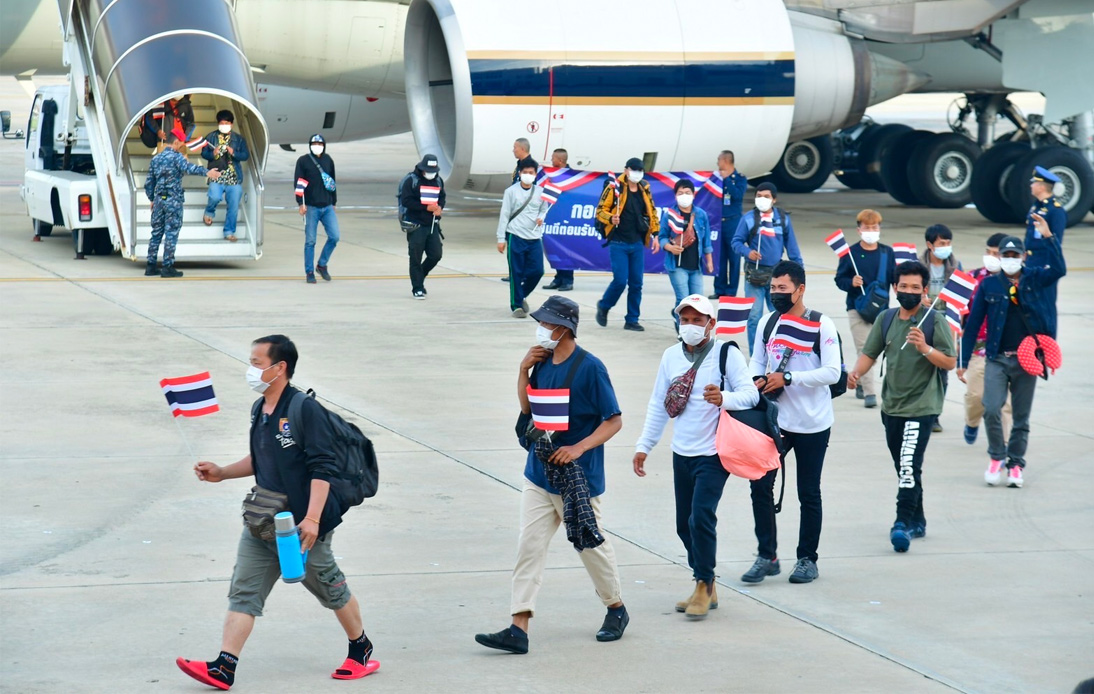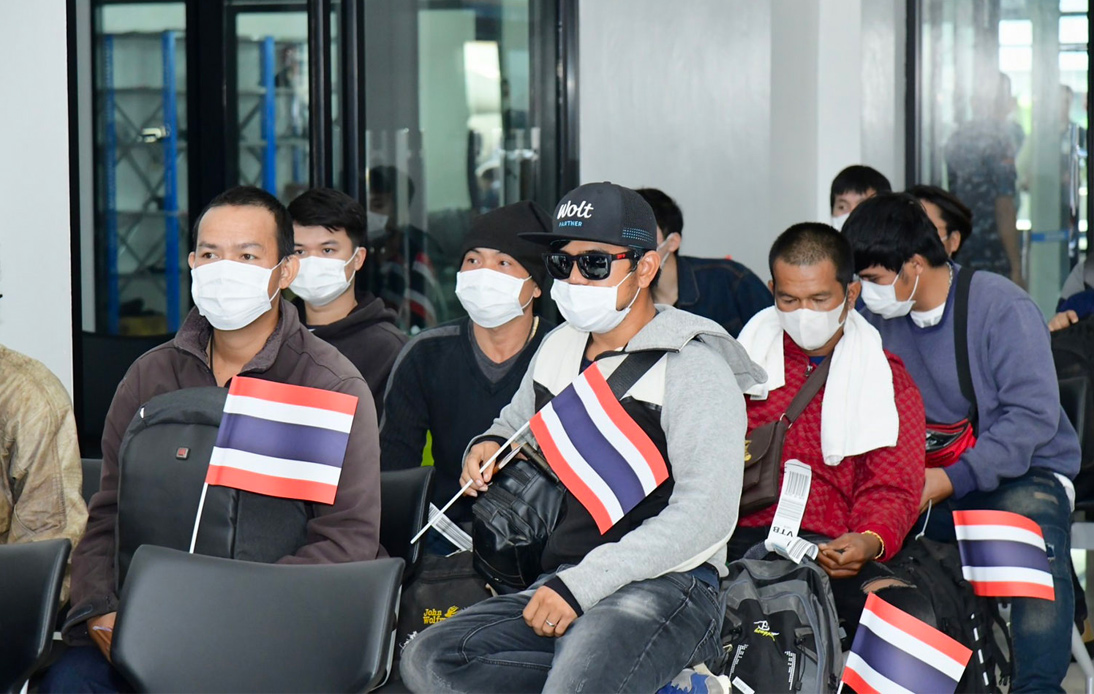
On Monday morning, an additional 130 Thai citizens were repatriated from Israel aboard a Royal Thai Air Force’s Airbus A340-500, marking the fourth group to return since the onset of the Israel-Hamas conflict on October 7.
The batch, including 127 men, two women, and a child aged five, were received by Defence Minister Sutin Klungsang and the Air Force’s chief-of-staff, ACM Seksan Kantha, upon their arrival.
After landing, the returnees were subjected to health screenings, immigration clearance, and formalities required by the Labour Ministry, followed by transportation to the Bamrasnaradura Infectious Diseases Institute for reunion with their family members.
Among the returnees, one individual sustained a broken arm, and four others displayed symptoms of the flu.
To date, the repatriation efforts have seen 254 Thai workers return home, encompassing 15 in the initial group, 19 in the second, and 90 in the third.
Minister Sutin disclosed that the Air Force scheduled five flights throughout October, anticipating the return of approximately 6,000 Thai nationals via these and other commercial flights.
He emphasized that while Thai citizens in Israel are not being forsaken, the evacuation process faces significant hurdles, including complications entering Israeli airspace and the escalation of conflict in the region.
Additionally, the government has contingency plans in place, such as deploying C130 aircraft or alternative transportation methods, to evacuate Thai nationals from Israel, the minister noted.
“We want to confirm that the evacuation of Thais in Israel is not slow,” he stated.
Furthermore, Minister Sutin mentioned ongoing discussions with Israeli authorities regarding the establishment of safe zones and the search for any Thai citizens potentially stranded in high-risk zones.
Compensation for Thai Workers
Phairoj Chotikasatien, serving as the permanent secretary for the Labour Ministry, stated that his ministry has assigned officials to assist Thai workers in obtaining compensation through the fund established to support overseas employees.
Eligible workers will receive 15,000 baht for employment loss attributable to the conflict, with an additional 30,000 baht provided for injuries and 40,000 baht for the families of the deceased, inclusive of funeral costs.
In contrast, compensation from Israel will be determined post-medical evaluation, contingent on the severity of each individual’s injuries or disability.
Specifically, workers with injuries affecting 10 to 19% of their body can expect approximately 1.4 million baht, while those more severely injured will receive a lifelong monthly stipend equivalent to their salary.
Moreover, surviving spouses are entitled to a monthly allowance of 34,560 baht until remarriage, and children are allotted between 5,760 and 11,520 baht monthly until reaching adulthood at 18.
Santi Nantasuwan, deputy director-general of the Department of Employment, clarified that workers could apply for compensation from the overseas workers’ assistance fund by presenting necessary documents at employment offices across the provinces.
The requisite documents comprise copies of the fund membership card, passport, ID card, work permit, and bank passbook, with additional guidance available through the department’s hotline at 1694.





















